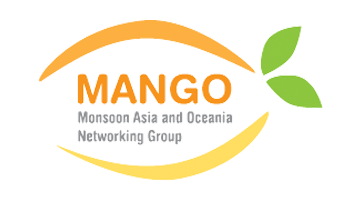Monsoon Asian and Oceania Networking Group (MANGO)
Although Monsoon Asia is one of the current “frontiers” for atmospheric chemistry, the region is not well connected to the international science community. Corresponding to emerging environmental issues including severe air pollution, the atmospheric chemistry community in Monsoon Asia is rapidly growing at both national and international levels, and policymakers need scientific evidence and support. However, there is large asymmetry between countries. Therefore, coordination across nations is needed to build an atmospheric science community in Asia, especially with afocus on countries that are not big enough to have national working groups.
The main objective of IGAC-MANGO is to form a cohesive network of atmospheric scientists in the Asian monsoon region, facilitate collaboration between Asian and international scientists, and foster the next generation of scientists in this region.
IGAC-MANGO will be a working body to:
- Enhance communication between scientists in Monsoon Asia, and the collaboration of Asian community to the international community for IGAC-related scientific questions, including changes in atmospheric composition and the resulting impacts, biomass burning, biogenic and anthropogenic emissions, air quality and health, the interplay of the Asian monsoon and atmospheric chemistry, fundamental sciences, mitigation options, etc.; and
- explore opportunities for funding and infrastructure that are needed to foster scientific research, capacity building, and regional collaborations.
Visit the MANGO website for more information.
